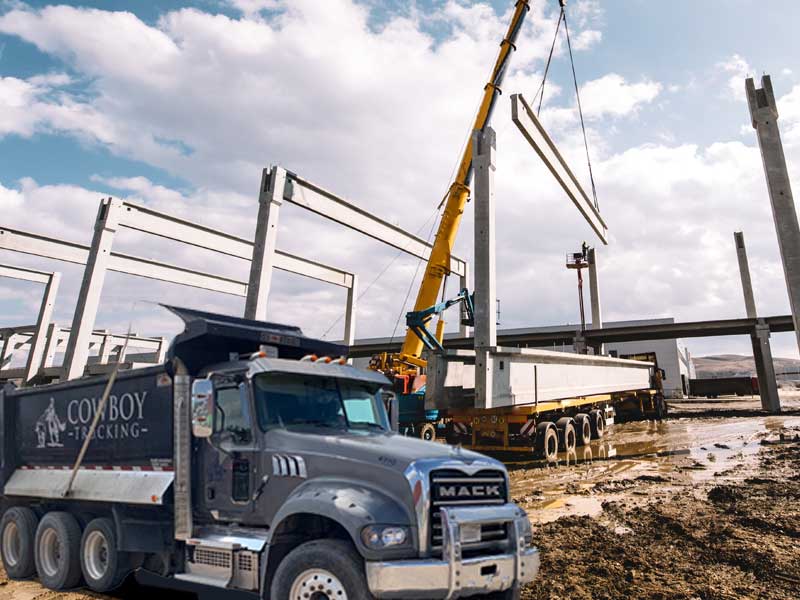
Any project by a highway construction company is, by definition, high-stakes. We know the challenges and understand the business from the inside as truckers and haulers. You have tight margins, shifting schedules, and intense public scrutiny. Any misstep in coordination – i.e. synchronizing and integrating all activities and resources – can easily snowball into costly delays or safety risks.
However, although most highway construction companies say they’re coordinating, many are really just reacting.
Really? Yes! The difference isn’t always obvious from day to day, but over time, a “reaction” mind state can mean you losing control over your project.
In this article, we’ll look at how even top-performing general contractors can get caught in a reactive loop – and how your highway construction company can shift from fighting fires to thinking ahead.
Why Highway Construction Companies Fall into Reactive Patterns
On paper, everything looks coordinated. You’ve got:
- the schedule,
- the crews,
- the materials lined up, and
- the equipment ordered.
But then reality hits. A truckload of asphalt arrives a day early, the paver’s stuck on another job, or the labor crew is waiting for an excavator delayed some distance away.
Suddenly, your foreman’s calling vendors, your PM’s shifting the sequence, and your superintendent’s on site juggling issues that should’ve been resolved days ago. Sound familiar?
This is where even the best highway construction companies fall into reactive patterns. Not because they’re disorganized, but because their systems for coordination aren’t dynamic enough to handle pressure in the real world.
A few common triggers that can bring you here include:
Overconfidence in the schedule: Your plan assumes everything goes right. When one piece slips, there’s no room to adjust.
Siloed communication: The equipment manager, material supplier, and your site crew might all be doing their jobs well, but working in silos creates misalignment over time.
No feedback loop: When last week’s coordination proves to have had a slip-up, no one formally debriefs it. Pressure keeps you moving on, but doesn’t solve things going forward!
It’s easy to mistake onsite activity for successful coordination. But if it’s mainly reacting, there are improvements you can make to your strategy and systems that will benefit you financially.
How a Highway Construction Company Can Shift from Reacting to Controlling
The greatest benefits to your business come from designing a system where the moving parts talk to each other before something goes wrong. It’s obvious but often missed.
So – here are a few ways your highway construction company can build that kind of system:
1. Replace Static Plans with Rolling Coordination Windows
A 3-week lookahead is helpful – but only if it’s actively updated and reviewed by the right people.
Try holding short, focused coordination meetings weekly (or even daily). This lets crews flag any possible conflicts early. And keep vendors or subcontractors in the loop wherever possible.
2. Assign Point People for Material-Equipment-Labor Handoffs
Many delays happen in the transitions: The material is on site, but no one knows where it goes. Or perhaps the machine’s ready, but the crew isn’t.
Having clear handoff owners – one person responsible for each link – can eliminate the ambiguity that causes reactive mechanisms to kick in.
3. Document the Near Misses
Your biggest lessons don’t always stem from major errors. They’re usually found in the almost problems, the near misses. Did a piece of equipment show up six hours late but didn’t cause delay this time? Capture that. Those are warning signs the system is strained, and they’re worth tracking.
4. Build Buffers Intentionally, Not Accidentally
If you want coordination to work at maximum efficiency, it perversely needs you to introduce some slack!
For example, if the milling crew needs two hours of buffer after traffic control is set up, bake that in on purpose.
Proactive coordination between teams isn’t flashy. It won’t get you awards (except maybe in term of more contracts). It happens in short meetings, small adjustments, and invisible handoffs that keep your project moving.
Cowboy Trucking Helps You Coordinate Your Operations
If your highway construction company is tired of managing chaos, one of the things that we’re good at as a family firm at Cowboy Trucking is communication.
We can’t do everything for you, but we contribute to coordinating your efforts effectively by fulfilling your trucking needs accurately, delivering when expected, and providing high-tech communication in real time.
If you’re looking for trucking companies near me, give us a call and let’s talk.
Main image attribution / Truck © Cowboy Trucking
